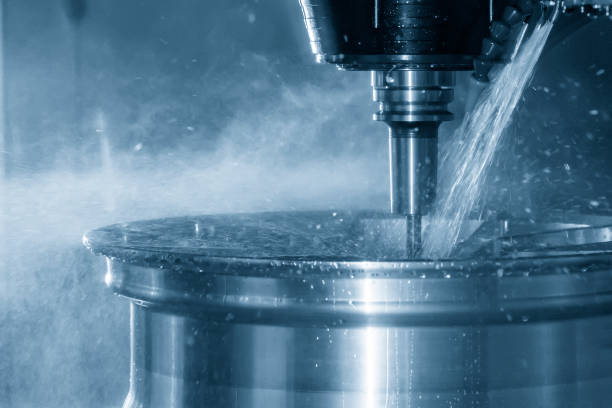Introduction:
Aluminium machines play a vital role in various industries, including automotive, aerospace, construction, and manufacturing. These machines are designed to handle the unique properties and challenges associated with aluminium, such as its lightweight nature and excellent heat conductivity. To ensure their optimal performance and longevity, proper maintenance is crucial. This article will discuss the importance of aluminium machine maintenance, the key maintenance practices, and the benefits of regular upkeep.
1. Enhanced Performance: Regular maintenance helps to keep aluminium machines in top working condition. By addressing any potential issues, such as worn-out parts or lubrication problems, the machines can operate at their optimum level, resulting in improved efficiency and productivity.
2. Cost Savings: Neglecting maintenance can lead to unexpected breakdowns or malfunctions, resulting in costly repairs and production downtime. By investing in regular maintenance, potential issues can be identified early on, preventing major breakdowns and reducing repair costs.
3. Safety Assurance: Aluminium machines often involve high-speed cutting, bending, and shaping processes. Regular maintenance ensures that safety features, such as emergency stop buttons and safety guards, are functioning correctly, protecting operators from potential accidents and injuries.
Key Maintenance Practices for Aluminium Machines:
1. Cleaning: Regularly cleaning aluminium machines, both internally and externally, is essential to remove dust, debris, and metal shavings. A clean machine reduces the risk of contamination and allows for better heat dissipation, improving overall performance.
2. Lubrication: Proper lubrication is critical for the smooth operation of aluminium machines. Lubricants should be applied to moving parts, such as gears and bearings, to reduce friction and wear. It is important to follow the manufacturer\’s recommendations regarding lubrication frequency and type of lubricant.
3. Inspection: Regular inspections help identify any signs of wear, damage, or misalignment. This includes checking belts, chains, and pulleys for tension and wear, as well as inspecting electrical components for loose connections or signs of overheating. Any issues identified during inspections should be addressed promptly to prevent further damage.
4. Calibration: Aluminium machines often require precise measurements and cutting angles. Regular calibration ensures accuracy and minimizes errors in the manufacturing process. Calibration should be performed by trained technicians using calibrated tools and equipment.
Benefits of Regular Maintenance:
1. Increased Lifespan: Regular maintenance significantly extends the lifespan of aluminium machines. By addressing minor issues early on, major breakdowns and costly repairs can be avoided, resulting in a longer operational life.
2. Improved Efficiency: Well-maintained machines operate more efficiently, delivering consistent and accurate results. This leads to increased productivity, reduced waste, and improved customer satisfaction.

3. Enhanced Safety: Regular maintenance ensures that safety features are functioning correctly, minimizing the risk of accidents and injuries to operators. This promotes a safe working environment and complies with occupational health and safety regulations.
4. Higher Resale Value: If the time comes to upgrade or replace aluminium machines, well-maintained equipment retains higher resale value. Potential buyers are more likely to invest in machines with a documented maintenance history, as they are considered more reliable and durable.
Conclusion:
Aluminium machines are essential for various industries, and their optimal performance and longevity depend on regular maintenance. By following key maintenance practices, such as cleaning, lubrication, inspection, and calibration, these machines can operate efficiently and safely. The benefits of regular maintenance include increased lifespan, improved efficiency, enhanced safety, and higher resale value. Investing in proper maintenance is crucial to ensure the continuous operation of aluminium machines and to maximize their value to businesses.
-

- OEM рама из магниевого сплава для литья под высоким давлением для велосипеда
-

- Детали БПЛА для тиксомолдинга из магниевого сплава
-

- Magnesium alloy die-casting electric vehicle mid-mounted motor housing
-

- Изготовленные на заказ детали тиксомолдинга Компоненты БПЛА с обработкой на станках с ЧПУ и обработкой поверхности
-

- OEM die-casting components & parts
-

- Magnesium Aluminium alloy die casting parts Chain cover for automotive

 0086-750-5616188
0086-750-5616188 +86 13392089688
+86 13392089688 sales@zhongmei-tech.com
sales@zhongmei-tech.com







